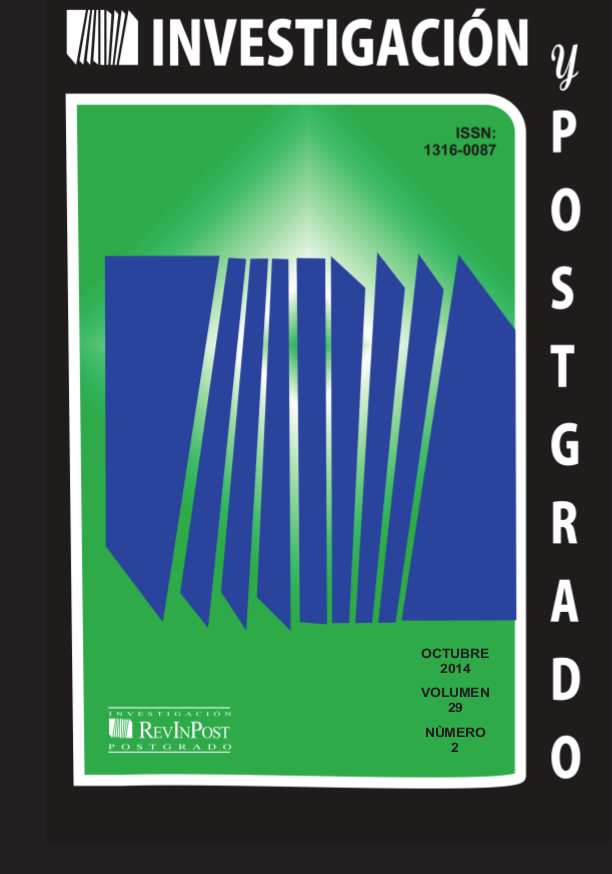DIDACTIC APPROACH: THE EDUCATIONAL ACCESSIBILITY IN THE INCLUSIVE CLASSROOMS
Keywords:
accessibility, training of teaching staff, inclusion, diversity, educational accessibilityAbstract
The inclusive education makes possible the right of the students’ diversity. This investigation focuses in three main concepts that, like a spiral, constitute a milestone in the initial educator’s development framework: the educational accessibility, the dimensions of the didactic process, and the minimum proposals to take care of the diversity within the classroom. The educational diversity incorporates, in its axiological dimension, in an intersection point, duties and rights. We must undertake in real actions the concept of diversity, in order to change the traditional practices and to contribute to the success of multiple development zones- and not just a homogenized zone for all the students. The challenge of teaching institutions is to become educational and institutional models, throughout diversified knowledge modeling and the formation of new teachers; based on the innovative conceptions and advances in investigations.
Downloads
References
Aguilar Mejía, E. y Viniegra Velázquez L. (2003). Atando teoría y práctica en la labor docente. México: Paidós.
Alonso, C.M., Gallego, D.J. y Honey, P. (1994). Estilos de Aprendizaje. Qué son, cómo se diagnostican. Bilbao: Mensajero.
Armstrong, T. (1999). Las inteligencias múltiples en el aula. Buenos Aires: Manantial.
Boggino, N. (2005). Cómo prevenir la indisciplina y la violencia en la escuela. En: Los valores y las normas sociales en la escuela. Una propuesta didáctica institucional [Documento en Línea]. Disponible: http://www.terras.edu.ar/jornadas/118/biblio/78Como-prevenir-la-indisciplina-y-.pdf [Consulta: 2013, Agosto 13]
Feuerstein, R., Rand, Y., Hoffman, M.B. y Miller, R. (1980). Instrumental Enrichment and intervention program for cognitive modifiability. Baltimore, Md.: University Park Press.
Gardner, H. (1987). Estructuras de la mente. México: Fondo de Cultura Económica.
Gardner, H. (1995). Inteligencias múltiples. Buenos Aires: Paidós.
Grzona, M. (2008, Noviembre). Las estrategias y su relación con los modelos de enseñanza. I Congreso Metropolitano de formación Docente. Facultad de Filosofía y Letras, UBA, Buenos Aires, Argentina.
Grzona, M. (2011, Agosto). Una Mirada Hacia el Futuro de la Educación Especial en Mendoza. Ponencia presentada en el Congreso Internacional de Educación Especial en Mendoza, convocado por la Dirección General de Escuelas y Dirección de Educación Especial de la Provincia de Mendoza. Mendoza, Argentina.
Grzona, M. (2013, Agosto). Inclusión Educativa y modalidades prácticas. Ponencia presentada en el 2° Congreso Internacional sobre Discapacidad. Organizado por el Gobierno del Chaco (Resistencia, Rca. Argentina) a través del Instituto Provincial para la Inclusión de las Personas con Discapacidad (IPRODICH). IPROVICH. Resistencia, Argentina.
Kolb, D. (1976). Psicología de las organizaciones. Experiencias. Madrid: Prentice Hall.
Kolb, D. (1982). Psicología de las organizaciones. Problemas Contemporáneos. Madrid: Prentice Hall.
Puente, A. (1994). Estilos de Aprendizaje y Enseñanza. Madrid: CEPE.
Thomas, G. y Loxley, A. (2007). Reconstrucción de la educación especial y construcción de la inclusiva. Madrid: La Muralla.
Jones, B., Palincsar, A., Ogle, D. y Carr, E. (1997). Estrategias para enseñar a aprender. Buenos Aires: Aique.
Pérez de Lara, N. (1998). La capacidad de ser sujeto. Barcelona, España: Laertes.
Molina Saorin, J. e Illán Romeu, N. (2008). Educar para la diversidad en la escuela actual: Una experiencia práctica de integración curricular. Alcalá de Guadaira: Editorial MAD Eduforma.
Vaillant, D. y Marcelo, C. (2001). Las tareas del formador. Archidonga, España: Aljibe.
Downloads
Published
How to Cite
Issue
Section
License
Copyright (c) 2014 Universidad Pedagógica Experimental Libertador

This work is licensed under a Creative Commons Attribution-NonCommercial-ShareAlike 4.0 International License.
Investigación y Postgrado está bajo una licencia internacional Creative Commons Attribution-NonCommercial-ShareAlike 4.0 .
La política de acceso abierto y de licencias con “algunos derechos reservados” no niega la propiedad intelectual ni los derechos de los autores respecto a sus artículos, al contrario, los respeta. Es por ello que:
No se reservan los derechos de publicación de los artículos. Los autores podrán distribuir su artículo en cualquier otro medio, siempre y cuando sea sin fines de lucro. Debe informar al Editor de esta nueva publicación y debe dar el crédito a la revista Investigación y Postgrado.













